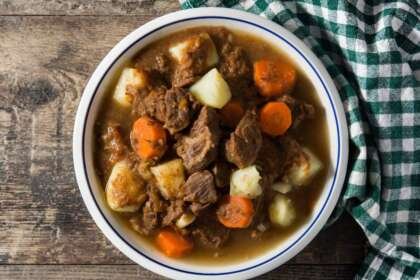In today’s fast-paced world, convenience often comes before nutrition. Many people reach for quick, ready-to-eat meals, and processed meats like bacon, hot dogs, sausages, and deli slices are popular choices.
But while these meats may be tasty and easy to prepare, they could be doing serious damage to your gut health.
Your gut is more than just a place where food gets digested. It’s home to trillions of bacteria, both good and bad, that play a key role in your overall health.
The balance of these bacteria—also called your gut microbiota—affects everything from your immune system to your mood. And the foods you eat can either support or harm this balance.
One of the biggest culprits when it comes to gut health damage? Processed meats.
Let’s explore why processed meats are harmful for your gut, what health risks they carry, and how you can make better choices for your digestive system.
What Are Processed Meats?
Processed meats are meats that have been altered to improve taste, preserve them longer, or both. This includes methods like curing, smoking, fermenting, or adding chemical preservatives. Common examples include:
- Sausages
- Bacon
- Hot dogs
- Deli meats (like ham, salami, turkey slices)
- Beef jerky
These foods are often high in sodium (salt), nitrates, and preservatives, which are used to make them taste better and last longer on shelves.
But these same ingredients can have harmful effects on your digestive system.
How Processed Meats Affect Your Gut
Your gut contains a complex community of bacteria. This is known as your gut microbiome.
A healthy microbiome is full of good bacteria that help you digest food, absorb nutrients, and protect against harmful germs.
But eating processed meats regularly can disturb this balance in a few key ways:
1. Reduced Good Bacteria
Studies show that the chemicals in processed meats can reduce the number of helpful bacteria in your gut.
These beneficial bacteria are important for breaking down fiber, producing vitamins, and keeping your immune system strong.
When their numbers go down, your body may struggle to perform these important functions.
2. Growth of Harmful Bacteria
When good bacteria are pushed out, bad bacteria can take over. This can lead to problems like bloating, gas, constipation, or diarrhea.
Over time, this imbalance—also called dysbiosis—can increase the risk of inflammation and disease.
3. Increased Inflammation
Some preservatives in processed meats, like nitrates and nitrites, have been linked to increased inflammation in the gut. (Source)
Inflammation is your body’s way of responding to harm, but when it becomes chronic, it can damage tissues and organs.
Chronic inflammation in the gut has been linked to diseases like colorectal cancer, irritable bowel syndrome (IBS), and Crohn’s disease. (Source)
4. Digestive Discomfort
If you’ve ever felt heavy or bloated after eating processed meats, you’re not alone. These meats often lack fiber, which helps move food through your digestive tract.
The high sodium content can also draw water into your gut, causing bloating and discomfort.
Over time, regular consumption of these foods can lead to sluggish digestion and poor gut function.
The Bigger Health Risks
Beyond just gut discomfort, eating processed meats regularly can lead to long-term health problems. Research has linked processed meat consumption to:
- Colorectal cancer: The World Health Organization (WHO) has classified processed meats as a Group 1 carcinogen, meaning there is strong evidence they can cause cancer, particularly of the colon and rectum.
- Heart disease: High levels of sodium and saturated fats in processed meats can increase blood pressure and cholesterol levels, raising your risk of heart disease.
- Type 2 diabetes: Processed meats may impact how your body uses insulin, the hormone that controls blood sugar.
- Obesity: These meats are often calorie-dense and low in fiber, which means they can contribute to weight gain without making you feel full.
While an occasional slice of bacon or a hot dog at a BBQ won’t ruin your health, making processed meats a regular part of your diet can set you on a path toward chronic illness.
Healthier Protein Alternatives
The good news is that you don’t have to give up meat completely to protect your gut. There are plenty of healthier protein sources that support gut health and overall wellness. Here are some gut-friendly options:
1. Fresh, Lean Meats
Choose fresh chicken, turkey, or lean cuts of beef or pork. These are much better for your gut than processed versions. Cook them yourself to avoid hidden preservatives.
2. Fish
Fish, especially salmon, sardines, and mackerel, are rich in omega-3 fatty acids that fight inflammation and support heart and brain health.
3. Beans and Legumes
Lentils, chickpeas, and black beans are full of fiber, which feeds the good bacteria in your gut. They’re also high in protein, making them a great meat substitute.
4. Tofu and Tempeh
These soy-based options are excellent for vegetarians and meat-eaters alike. They provide protein without the harmful additives found in processed meats.
5. Eggs
Eggs are an easy and affordable source of protein. They’re versatile and gut-friendly when cooked without heavy oils or sauces.
Tips to Protect Your Gut
Here are a few simple tips to improve your gut health and reduce your intake of harmful processed meats:
- Cook at home more often: This way, you know exactly what’s going into your food.
- Read labels: Look out for terms like “cured,” “smoked,” or “nitrate/nitrite” in ingredients.
- Add more fiber: Foods like fruits, vegetables, and whole grains feed the good bacteria in your gut.
- Stay hydrated: Water helps move food through your digestive system and keeps everything running smoothly.
- Limit alcohol and sugar: Both can disturb the gut microbiome when consumed in large amounts.












